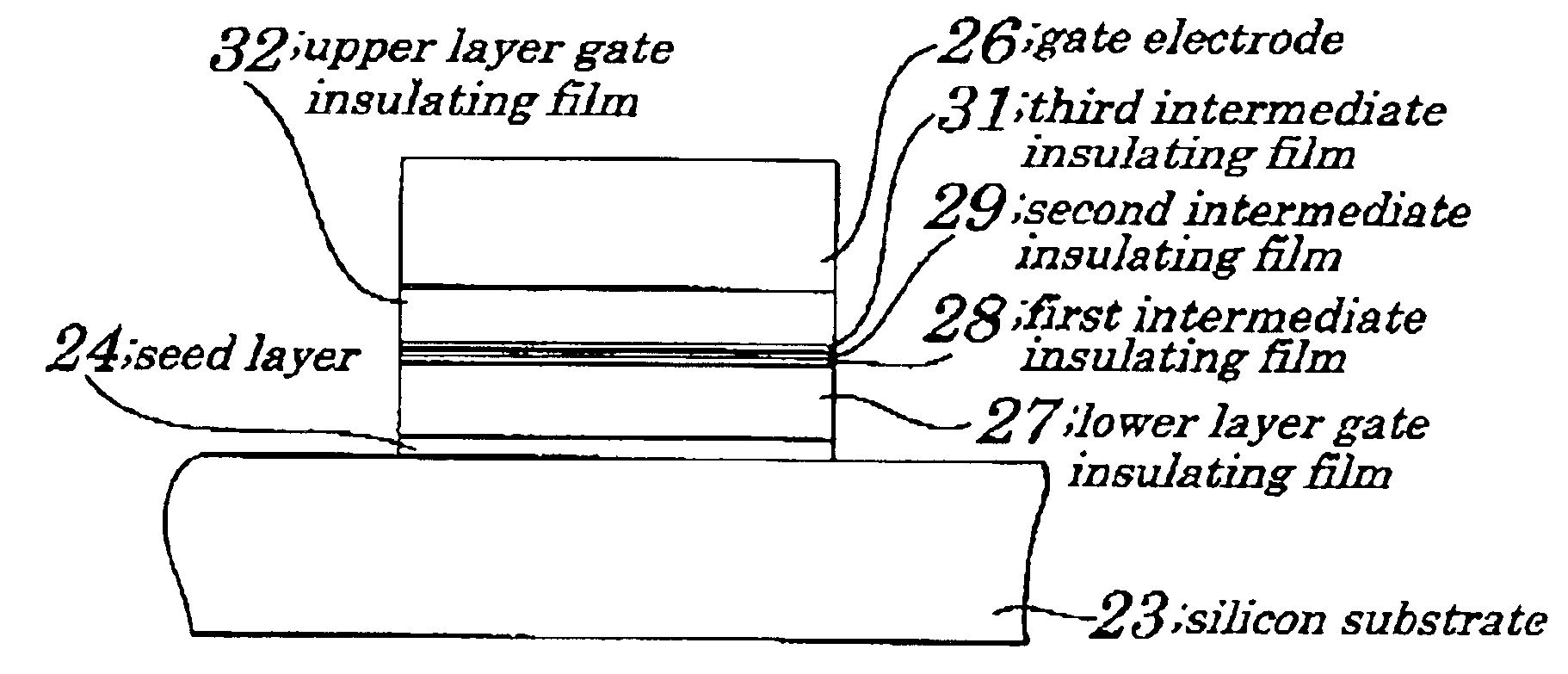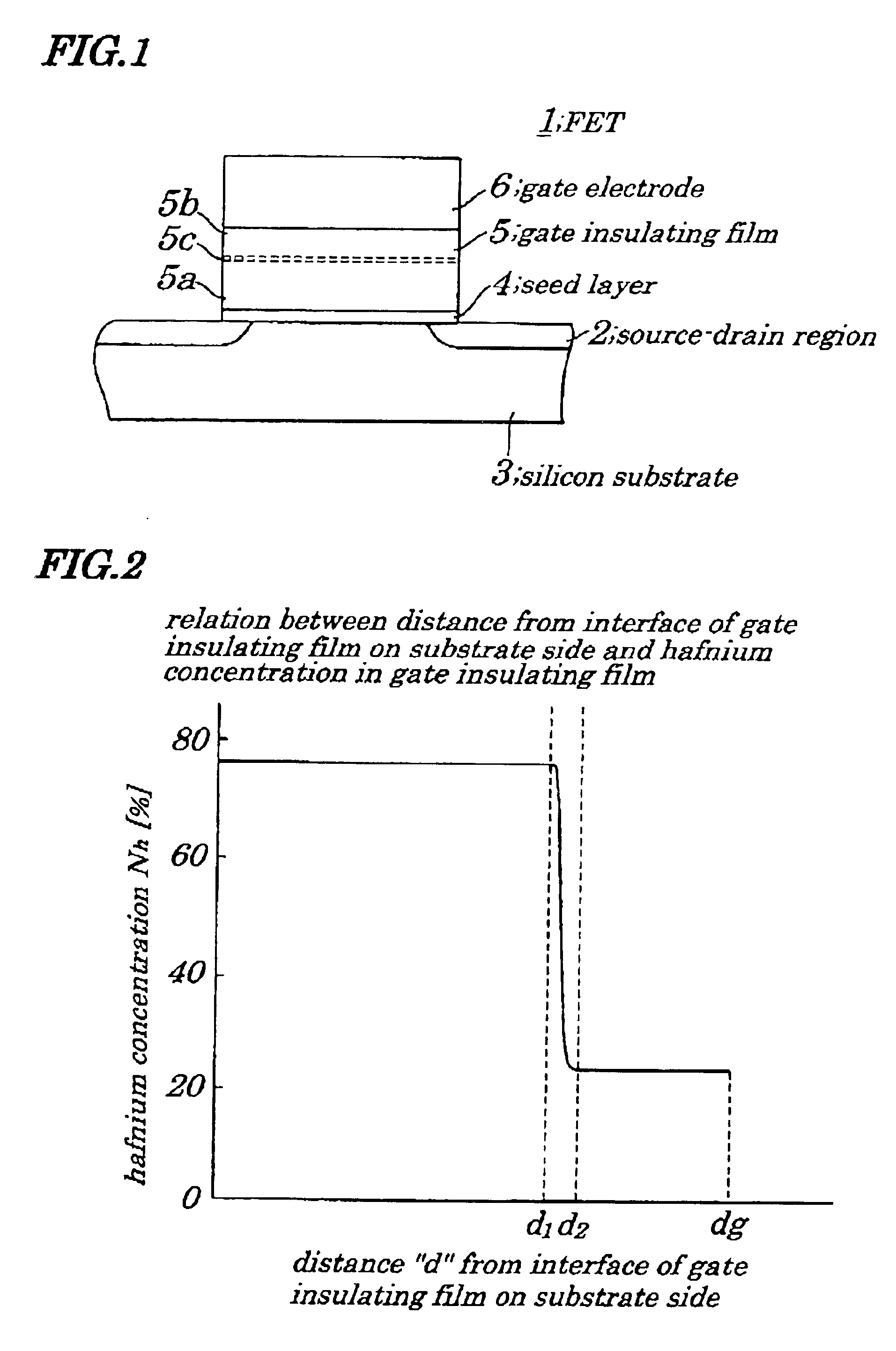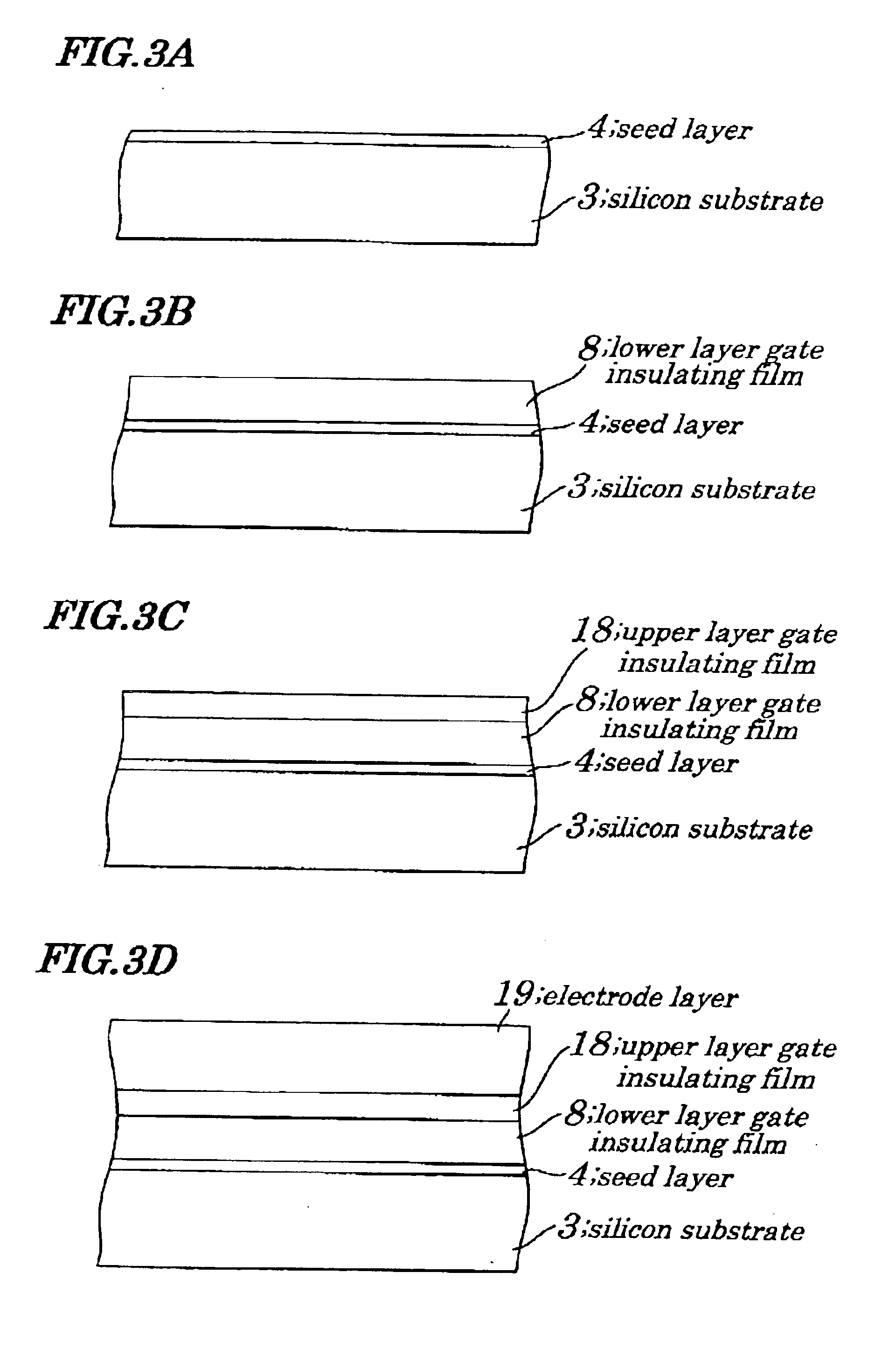Semiconductor device and method for manufacturing same
- Summary
- Abstract
- Description
- Claims
- Application Information
AI Technical Summary
Benefits of technology
Problems solved by technology
Method used
Image
Examples
first embodiment
[0062]FIG. 1 is a cross-sectional view for schematically illustrating featured configurations of an FET (Field Effect Transistor) according to a first embodiment of the present invention. FIG. 2 is a characteristic diagram briefly showing a relation between a distance from an interface of a gate insulating film on a side of a substrate and a hafnium concentration “Nh” obtained after heat treatment in a gate insulating film making up the FET according to the first embodiment. FIGS. 3A to 3D, and FIGS. 4A and 4B are process diagrams for illustrating a method for manufacturing the FET according to the first embodiment. FIG. 5 is a diagram briefly showing an ALD (Atomic-Layer Deposition) system to be used for manufacturing the FET according to the first embodiment. FIG. 6 is a diagram explaining a method for supplying material gas or a like employed in the ALD system of FIG. 5. FIG. 7 is a diagram explaining a method for supplying material gas or a like employed in the ALD system of FIG...
second embodiment
[0085]FIG. 10 is a cross-sectional view for schematically illustrating configurations of main portions of an FET according to a second embodiment of the present invention. FIG. 11 is a cross-sectional view schematically illustrating configurations of intermediate regions in a gate insulating film of the FET 21 of the second embodiment. FIG. 12 is a characteristic diagram briefly showing a relation between a distance from an interface of the gate insulating film on a substrate side in the gate insulating film making up the FET 21 and a hafnium concentration “Nh” obtained after heat treatment in the gate insulating film making up the FET 21 of FIG. 10. FIGS. 13A, 13B and 13C are process diagrams illustrating a method for manufacturing the FET 21 of FIG. 10. FIG. 14 is a characteristic diagram briefly showing a relation between a distance from the interface of the gate insulating film on the substrate side in the gate insulating film making up the FET 21 and a hafnium concentration “Nh...
PUM
 Login to View More
Login to View More Abstract
Description
Claims
Application Information
 Login to View More
Login to View More - R&D
- Intellectual Property
- Life Sciences
- Materials
- Tech Scout
- Unparalleled Data Quality
- Higher Quality Content
- 60% Fewer Hallucinations
Browse by: Latest US Patents, China's latest patents, Technical Efficacy Thesaurus, Application Domain, Technology Topic, Popular Technical Reports.
© 2025 PatSnap. All rights reserved.Legal|Privacy policy|Modern Slavery Act Transparency Statement|Sitemap|About US| Contact US: help@patsnap.com



